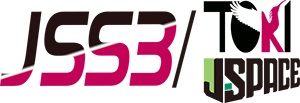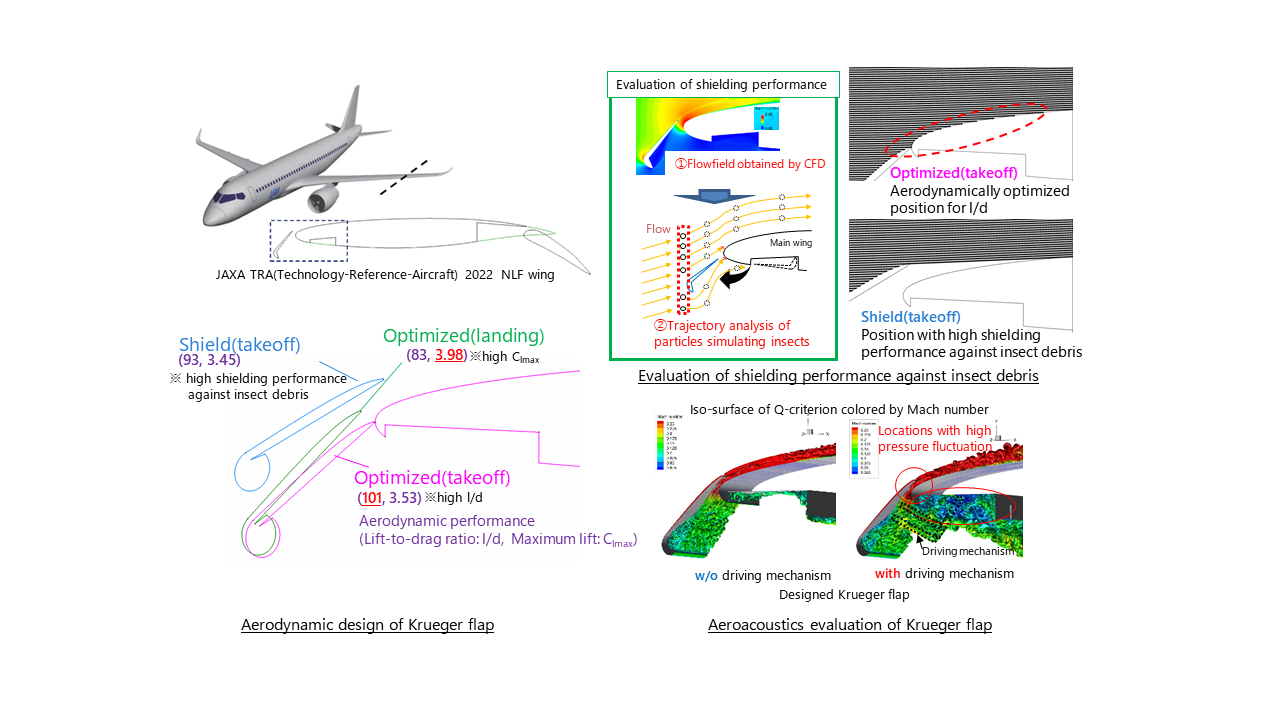Innovative Green Aircraft Technology : High Efficiency and Low Noise Aircraft II
JAXA Supercomputer System Annual Report February 2021-January 2022
Report Number: R21EA0602
Subject Category: Aeronautical Technology
- Responsible Representative: Tatsuya Ishii, Aeronautical Technology Directorate, Aviation Enviromental Sustanability Innovation Hub
- Contact Information: Dongyoun Kwak, Aviation Environmental Sustainability Innovation Hub(kwak.dongyoun@jaxa.jp)
- Members: Dongyoun Kwak, Mitsuhiro Murayama, Yasushi Ito, Ryotaro Sakai, Tomoaki Ikeda, Ryutaro Furuya
Abstract
The purpose of the research is to develop and mature a bunch of advanced and innovative technologies on aerodynamics, aeroacoustics, and structures to enable airframe design with higher environmental performances of future aircraft application, thereby helping the Japanese aviation industry to enhance its share on the global market. In addition to verifying practical application of these technologies, we will also work on the development of elemental and system technologies.
Reference URL
Please refer to https://www.aero.jaxa.jp/eng/research/ecat/igreen/ .
Reasons and benefits of using JAXA Supercomputer System
To develop and mature advanced and innovative technologies of aerodynamic drag reduction, aircraft noise reduction, and airframe-engine installation design for future aircrafts, development of CFD technologies and CFD-based design/analyis have been conducted in this research. The high-fidelity CFD analysis of the whole aircraft configurations with the airframe-engine installation or the complicated configurations with high-lift devices deployed at take-off and landing requires large computational resources. JSS enables the high-fidelity evaluations of the peformance in a timely manner and the technology developments.
Achievements of the Year
Drag reduction by the Natural-Laminar-Flow (NLF) wing is expected as one of key technologies to largely reduce fuel consumption and CO2 emissions. To achieve the practical use of the NLF wing, performance degradation by steps/discontinuities on wing surface and leading-edge contamination with insect debris to induce laminar-to-turbulent flow transition should be decreased. Conventional slats as leading-edge high-lift devices which are deployed to delay stall during take-off and landing have steps/discontinuities at the trailing-edge between upper surface of the main wing when retracted. As the alternative to the slats, Krueger flap system deployed from lower surface of the man wing is taken into consideration, with other advantages such as shielding effect for the leading-edge contamination against insect debris. In this research, performance improvements on the aerodynamics and aeroacoustics of the Krueger flap have been investigated.
The aerodynamic design of the Krueger flap has been conducted for a representative NLF airfoil extracted from the outer wing of JAXA Technology-Reference-Aircraft 2022 (120-seat class). By steady-state RANS CFD analyses, the configurations and the position settings have been identified to achieve high aerodynamic performances at both take-off and landing conditions and high shielding performance against insect debris. The low-noise performances of the designed Krueger flap have been evaluated by unsteady CFD analyses (Fig.1). The impacts of the driving mechanism of Krueger flap exposed to the air on the low-noise performance have been also identified in the research (Fig. 1).
Publications
N/A
Usage of JSS
Computational Information
- Process Parallelization Methods: MPI
- Thread Parallelization Methods: N/A
- Number of Processes: 1728 – 5280
- Elapsed Time per Case: 380 Hour(s)
JSS3 Resources Used
Fraction of Usage in Total Resources*1(%): 2.32
Details
Please refer to System Configuration of JSS3 for the system configuration and major specifications of JSS3.
| System Name | CPU Resources Used(Core x Hours) | Fraction of Usage*2(%) |
|---|---|---|
| TOKI-SORA | 54518659.69 | 2.65 |
| TOKI-ST | 69351.14 | 0.09 |
| TOKI-GP | 0.00 | 0.00 |
| TOKI-XM | 0.00 | 0.00 |
| TOKI-LM | 57461.97 | 4.28 |
| TOKI-TST | 0.00 | 0.00 |
| TOKI-TGP | 0.00 | 0.00 |
| TOKI-TLM | 0.00 | 0.00 |
| File System Name | Storage Assigned(GiB) | Fraction of Usage*2(%) |
|---|---|---|
| /home | 633.05 | 0.63 |
| /data and /data2 | 29893.19 | 0.32 |
| /ssd | 3502.49 | 0.90 |
| Archiver Name | Storage Used(TiB) | Fraction of Usage*2(%) |
|---|---|---|
| J-SPACE | 309.69 | 2.09 |
*1: Fraction of Usage in Total Resources: Weighted average of three resource types (Computing, File System, and Archiver).
*2: Fraction of Usage:Percentage of usage relative to each resource used in one year.
ISV Software Licenses Used
| ISV Software Licenses Used(Hours) | Fraction of Usage*2(%) | |
|---|---|---|
| ISV Software Licenses(Total) | 89.91 | 0.06 |
*2: Fraction of Usage:Percentage of usage relative to each resource used in one year.
JAXA Supercomputer System Annual Report February 2021-January 2022



